第36章 CHAPTER VI--THE TRUE FAIRY TALE(5)
My dear child, we cannot know, and need not know. But we know this--that God beholds all the heathen. He fashions the hearts of them, and understandeth all their works. And we know also that He is just and good. These poor folks were, I doubt not, happy enough in their way; and we are bound to believe (for we have no proof against it), that most of them were honest and harmless enough likewise. Of course, ogres and cannibals, and cruel and brutal persons (if there were any among them), deserved punishment--and punishment, I do not doubt, they got. But, of course, again, none of them knew things which you know; but for that very reason they were not bound to do many things which you are bound to do. For those to whom little is given, of them shall little be required. What their religion was like, or whether they had any religion at all, we cannot tell. But this we can tell, that known unto God are all His works from the creation of the world; and that His mercy is over all His works, and He hateth nothing that He has made. These men and women, whatever they were, were God's work; and therefore we may comfort ourselves with the certainty that, whether or not they knew God, God knew them.
And so ends my fairy tale.
But is it not a wonderful tale? More wonderful, if you will think over it, than any story invented by man. But so it always is.
"Truth," wise men tell us, "is stranger than fiction." Even a child like you will see that it must be so, if you will but recollect who makes fiction, and who makes facts.
Man makes fiction: he invents stories, pretty enough, fantastical enough. But out of what does he make them up? Out of a few things in this great world which he has seen, and heard, and felt, just as he makes up his dreams. But who makes truth? Who makes facts? Who, but God?
Then truth is as much larger than fiction, as God is greater than man; as much larger as the whole universe is larger than the little corner of it that any man, even the greatest poet or philosopher, can see; and as much grander, and as much more beautiful, and as much more strange. For one is the whole, and the other is one, a few tiny scraps of the whole. The one is the work of God; the other is the work of man. Be sure that no man can ever fancy anything strange, unexpected, and curious, without finding if he had eyes to see, a hundred things around his feet more strange, more unexpected, more curious, actually ready-made already by God. You are fond of fairy tales, because they are fanciful, and like your dreams. My dear child, as your eyes open to the true fairy tale which Madam How can tell you all day long, nursery stories will seem to you poor and dull. All those feelings in you which your nursery tales call out,--imagination, wonder, awe, pity, and I trust too, hope and love--will be called out, I believe, by the Tale of all Tales, the true "Marchen allen Marchen," so much more fully and strongly and purely, that you will feel that novels and story-books are scarcely worth your reading, as long as you can read the great green book, of which every bud is a letter, and every tree a page.
Wonder if you will. You cannot wonder too much. That you might wonder all your life long, God put you into this wondrous world, and gave you that faculty of wonder which he has not given to the brutes; which is at once the mother of sound science, and a pledge of immortality in a world more wondrous even than this. But wonder at the right thing, not at the wrong; at the real miracles and prodigies, not at the sham. Wonder not at the world of man.
Waste not your admiration, interest, hope on it, its pretty toys, gay fashions, fine clothes, tawdry luxuries, silly amusements.
Wonder at the works of God. You will not, perhaps, take my advice yet. The world of man looks so pretty, that you will needs have your peep at it, and stare into its shop windows; and if you can, go to a few of its stage plays, and dance at a few of its balls.
Ah--well--After a wild dream comes an uneasy wakening; and after too many sweet things, comes a sick headache. And one morning you will awake, I trust and pray, from the world of man to the world of God, and wonder where wonder is due, and worship where worship is due. You will awake like a child who has been at a pantomime over night, staring at the "fairy halls," which are all paint and canvas; and the "dazzling splendours," which are gas and oil; and the "magic transformations," which are done with ropes and pulleys; and the "brilliant elves," who are poor little children out of the next foul alley; and the harlequin and clown, who through all their fun are thinking wearily over the old debts which they must pay, and the hungry mouths at home which they must feed: and so, having thought it all wondrously glorious, and quite a fairy land, slips tired and stupid into bed, and wakes next morning to see the pure light shining in through the delicate frost-lace on the window-pane, and looks out over fields of virgin snow, and watches the rosy dawn and cloudless blue, and the great sun rising to the music of cawing rooks and piping stares, and says, "This is the true wonder. This is the true glory. The theatre last night was the fairy land of man; but this is the fairy land of God."